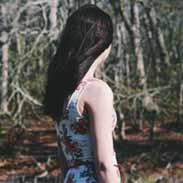Your Rights: Freedom of Expression Quiz – Flashcards
Unlock all answers in this set
Unlock answersquestion
Which best describes what the government had to prove for its censorship of the New York Times to have been acceptable? The articles would have had to indisputably harm the nation. The articles would have had to potentially threaten national security. The articles would have had to reveal classified information. The articles would have had to support the enemy in wartime.
answer
The articles would have had to indisputably harm the nation.
question
What is symbolic speech? an action that expresses an idea or opinion the act of peaceful protest the publication of an article despite prior restraint an idea or opinion expressed through metaphor
answer
an action that expresses an idea or opinion
question
Edwards v. South Carolina protected people's right to assemble and attempt to stop something from being printed. display unpopular views in a disruptive way. express unpopular views in a peaceful way. protest against something on private property.
answer
express unpopular views in a peaceful way.
question
According to the Supreme Court, which of these most likely prompted the arrest of the protesters in Edwards v. South Carolina? The protestors supported an unpopular view. The protesters assembled in front of the statehouse. The protesters were a threat to public safety. The protesters marched without a permit.
answer
The protestors supported an unpopular view.
question
When can the government restrict information released by the press? The government can never restrict information released by the press. The government can only restrict information when it could be harmful to an individual's reputation. The government can only restrict information released when practicing prior restraint. The government can only restrict information that could present an immediate threat to security or the public.
answer
The government can only restrict information that could present an immediate threat to security or the public.
question
In Tinker v. Des Moines, why was it considered protected speech for students to wear armbands? Their action did not negatively influence other students. Their action was not disruptive. Their action occurred off school grounds. Their action was political speech.
answer
Their action was not disruptive.
question
The events surrounding Tinker v. Des Moines involved a school, so why did the First Amendment apply? The events involved symbolic speech without disruption. The First Amendment always applies to issues of speech. The events involved controversial issues. The protest was an act of civil disobedience.
answer
The events involved symbolic speech without disruption.
question
Edwards v. South Carolina is significant in terms of selective incorporation because it limited states' abilities to restrict the freedom of speech. the right to petition the government for redress. the right to peacefully assemble. the freedom of the press.
answer
the right to petition the government for redress.
question
For which of these does the First Amendment offer no protection? civil disobedience protests symbolic speech libel
answer
libel
question
Under what circumstances would the protest of the students in Tinker v. Des Moines be deemed unprotected speech? if their action had clearly threatened order and safety if their action had supported an unpopular opinion if their action had not been political if their action had promoted an artistic endeavor
answer
if their action had clearly threatened order and safety



